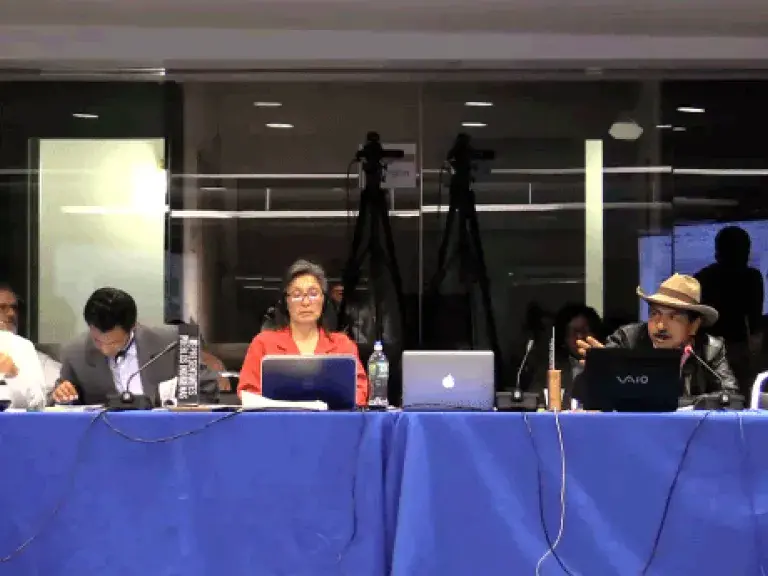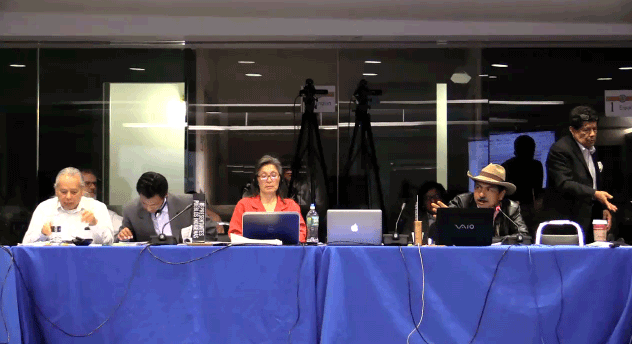
 The Organization of American States (OAS), a regional intergovernmental organization that seeks to build collaboration among its 35 member countries of the Americas, completed the fourth round of negotiations on the draft American Declaration on the Rights of Indigenous Peoples on May 15, 2015.
The Organization of American States (OAS), a regional intergovernmental organization that seeks to build collaboration among its 35 member countries of the Americas, completed the fourth round of negotiations on the draft American Declaration on the Rights of Indigenous Peoples on May 15, 2015.
“Because of our success with the UN Declaration on the Rights of Indigenous Peoples, some feel that the work is now complete, but this is far from our current reality," said Armstrong Wiggins, Director of the Center’s Washington Office. "The realization of the American Declaration is significant; it is specific to indigenous peoples within the Americas and contains articles that go further in protecting indigenous rights than the U.N. Declaration.”
The American Declaration will be a comprehensive, regional human rights instrument that promotes and protects the rights of indigenous peoples in North, Central, and South America and the Caribbean. The OAS Working Group on the draft American Declaration began work on the text in 1997 and hosted several rounds of negotiations before suspending work in 2012 due to lack of funding.
The Chair of the Working Group, Ambassador Diego Pary of Bolivia, has led four rounds of negotiations since the beginning of the year with the goal of finalizing the text of the American Declaration to present for consideration by the OAS General Assembly, June 15-16, 2015. The minimum standard for the remaining articles will be the United Nations Declaration on the Rights of Indigenous Peoples.
From the negotiation process, the Draft American Declaration includes agreed upon language addressing unique regional particularities including indigenous peoples’ collective rights (Article VI), juridical personality (Article IX), indigenous family (Article XVI.1), best interest of indigenous children (Article XVI.2), indigenous law and jurisdiction (Article XXI), indigenous peoples living in voluntary isolation (Article XXVI), and indigenous peoples under internal armed conflicts (Article XXX.3-4).
In comparison to the UN Declaration within the UN system, the American Declaration can be immediately used by the organs of the Inter-American Human Rights System. The Inter-American Commission on Human Rights, for example, can issue special reports on indigenous peoples and decide cases in light of the standards reflected in the American Declaration. Perhaps more importantly, the Inter-American Court on Human Rights, an actual supranational court, can decide indigenous human rights cases taking into account the American Declaration standards when applying regional human rights treaties, such as the American Convention on Human Rights. The court’s decisions are binding to the State concerned, and usually order both law reform and redress measures to be adopted.
Center staff have participated in all of the negotiations to provide legal advice and support to the indigenous representatives.
